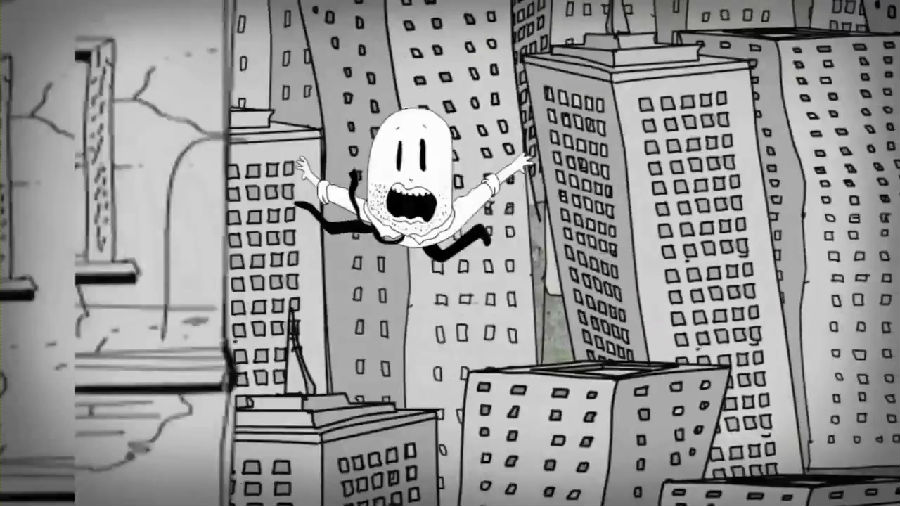Why are these people now less likely to take their own lives? Urbanisation and greater freedom have helped. Accounts of those who attempt suicide, and of the relatives of those who succeed, suggest that many young Asian women were driven to despair by violent husbands and overbearing in-laws. As people move to cities and the grip of tradition loosens, women have more choice about whom they marry or live with, making life more bearable. Leaving the village helps in another way, too. Because farming involves killing things, rural folk are likelier to have the means to kill themselves—guns, pesticides—to hand.
為何這三類人自殺幾率變低?城市化和更多自由起到了幫助作用。根據(jù)企圖自殺的人以及自殺人親屬描述,許多亞洲年輕女性是被家暴的丈夫和專橫的親戚逼至絕望。隨著人們向城市遷移,傳統(tǒng)的束縛逐漸放松,女性在選擇結(jié)婚對(duì)象或同居對(duì)象方面有了更多的選擇,這讓生活變得更容易忍受。離開農(nóng)村在另一方面也有幫助作用。因?yàn)檗r(nóng)業(yè)涉及到殺生,所以農(nóng)村人更有可能擁有親手殺死自己的武器——槍支、殺蟲劑。
Social stability is also a factor. In the turbulence that followed the collapse of the Soviet Union, many middle-aged people saw their sources of income and status collapse. Unemployed people kill themselves at around two-and-a-half times the rate of those in work. The financial crash of 2007-08 and the resulting recessions are reckoned to have caused an extra 10,000 or so suicides in America and western Europe. As crises recede and employment rises, so suicide tends to ebb. And falling poverty rates among the old, which have declined faster than among other groups globally, are reckoned to have contributed to the drop in the number of elderly suicides.
另一因素是社會(huì)穩(wěn)定。蘇聯(lián)解體后,社會(huì)動(dòng)蕩,很多俄羅斯中年人收入和社會(huì)地位驟降。失業(yè)人群自殺率約為在職人群的2.5倍。2007-08年的金融危機(jī)以及隨之而來的經(jīng)濟(jì)衰退據(jù)估計(jì)已經(jīng)在美國(guó)和西歐造成了大約1萬(wàn)人自殺。隨著危機(jī)消退,就業(yè)率上升,自殺傾向也會(huì)下降。與全球其他群體相比,老年人貧困率下降的速度更快,據(jù)估計(jì),這也是老年人自殺人數(shù)下降的原因之一。

But the decline is not just the consequence of big social trends. Policy plays a role, too. When Mikhail Gorbachev restricted the production and distribution of booze in the mid-1980s, both drinking and suicide fell sharply. The collapse of the Soviet Union swept those regulations aside, and both drinking and suicide shot up again. Restrictions introduced by Vladimir Putin in 2005 are reckoned to have contributed to the recent decline.
但這種下降不僅僅是大社會(huì)趨勢(shì)的結(jié)果。政策也起了作用。上世紀(jì)80年代中期,前蘇聯(lián)領(lǐng)導(dǎo)人米哈伊爾·戈?duì)柊蛦谭蛳拗凭凭纳a(chǎn)與分銷后,酗酒與自殺的情況都大幅下降。蘇聯(lián)的解體將這些規(guī)定拋在腦后,酗酒和自殺事件再次發(fā)生。據(jù)估計(jì),到了2005年,時(shí)任俄羅斯總統(tǒng)普京再度出臺(tái)相關(guān)限制措施后,讓近年自殺率再次下降。
Governments can also help limit the consequences of social and economic turbulence. Active labour-market policies, which help re-train jobless workers and ease them back into work, prevent many suicides. And spending on health services, especially those that most benefit the old and sick, can make a big difference: fear of chronic pain is one of the things that leads people to seek a quick way out. The remarkable recent fall in suicide among elderly Britons may have happened in part because Britain’s palliative-care system is the best in the world.
政府還可以幫助限制社會(huì)和經(jīng)濟(jì)動(dòng)蕩的后果。通過制定積極的勞動(dòng)力市場(chǎng)政策,幫助重新培訓(xùn)失業(yè)工人并使他們輕松地重返工作崗位,以預(yù)防自殺事件。增加醫(yī)療服務(wù)上的支出,可以使老年人與病人受益,因?yàn)閷?duì)慢性疼痛的恐懼往往是他們尋求自殺的一個(gè)重要因素。近年英國(guó)老年人自殺率的顯著下降,就歸功于英國(guó)的完備“緩和醫(yī)療”制度。
譯文由可可原創(chuàng),僅供學(xué)習(xí)交流使用,未經(jīng)許可請(qǐng)勿轉(zhuǎn)載。












